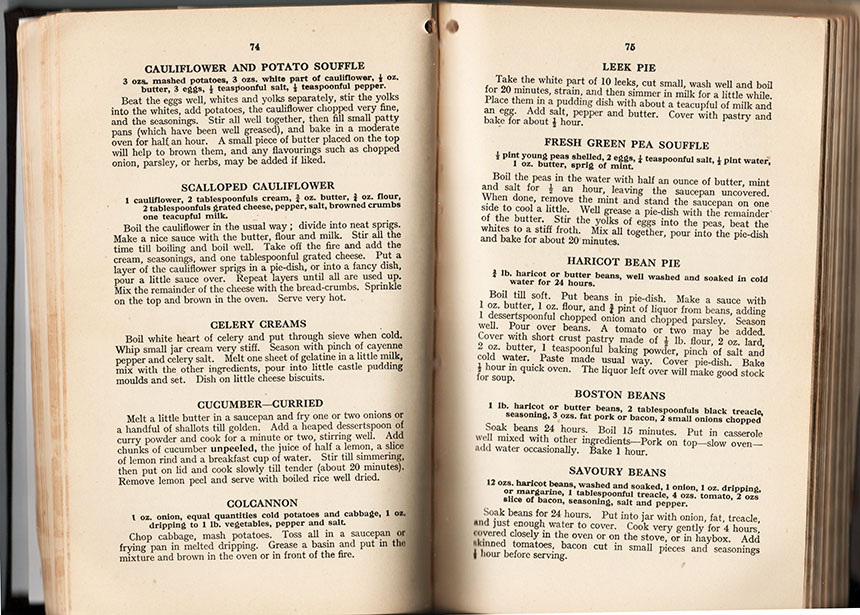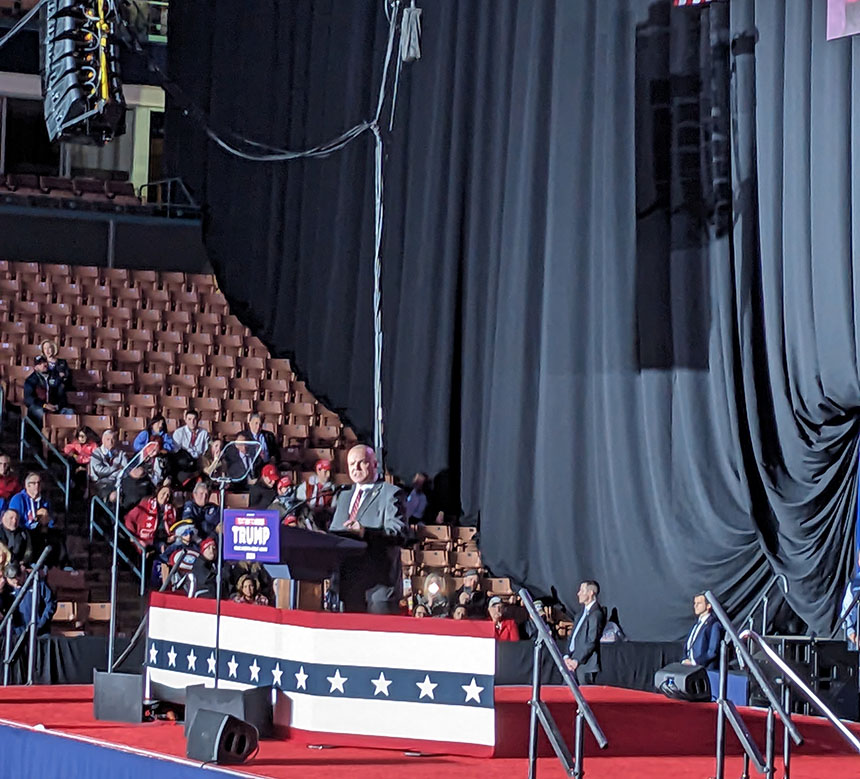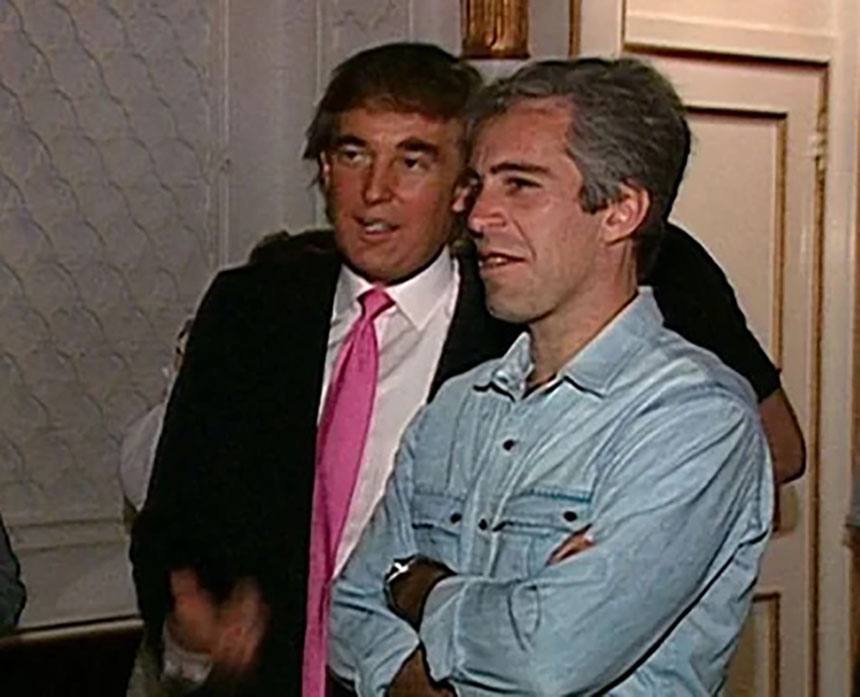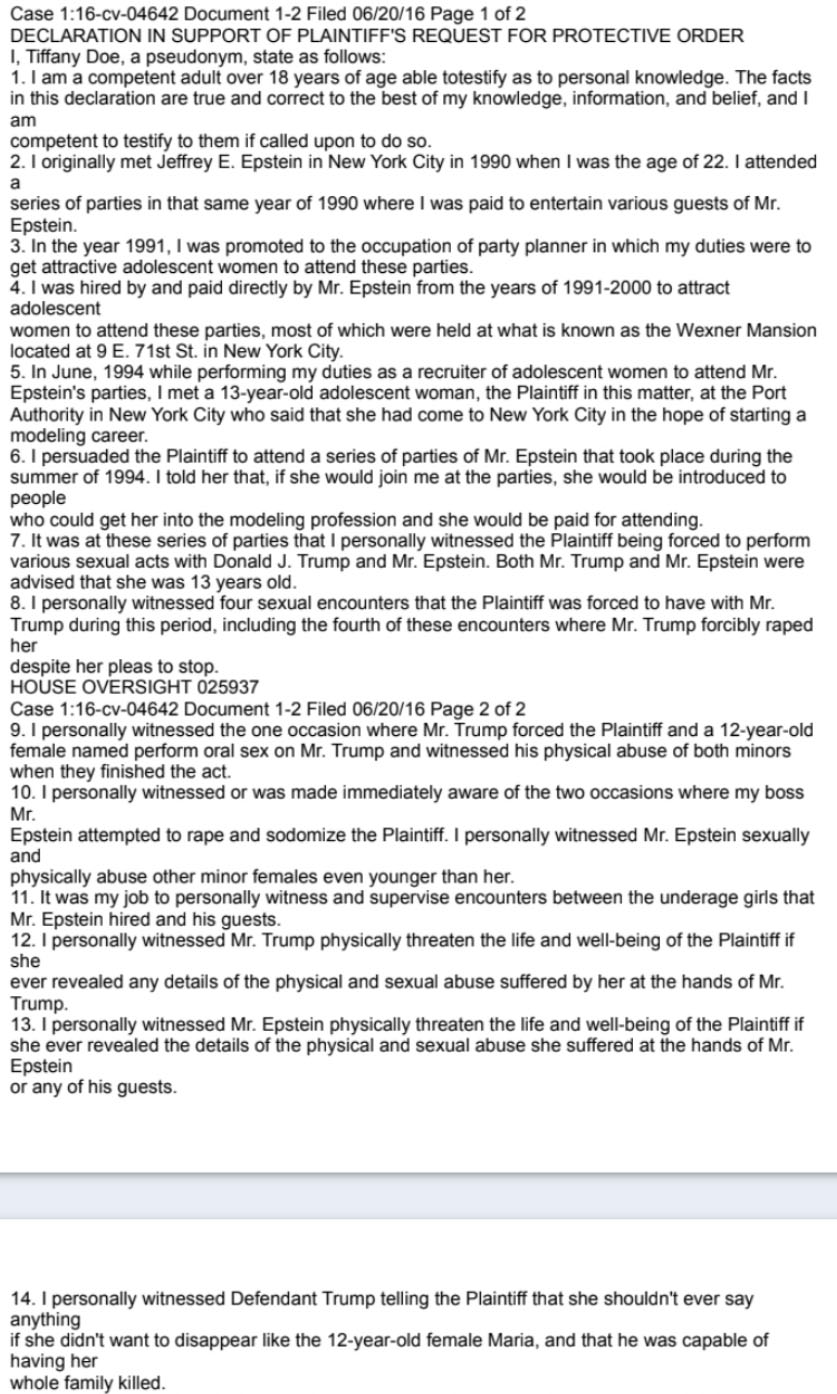
The media malpractice this morning is shocking. Yesterday the entire Congress voted almost unanimously to release the Epstein files. There is no way that such an event won’t end up as a major moment in American history. And yet, the New York Times’ web site this morning has the story way down below the middle of the page, with a small headline. Not only that, but the story is completely cowardly, all about politics in Congress without a word about what this means for the Trump presidency. The Times’ lousy, cowardly columnists, at least as of 7:30 a.m., were silent.
As usual these days, we have to look somewhere else for any helpful analysis. Heather Cox Richardson’s Substack post this morning was one of her history lessons, about Gettysburg. I had to do some digging around to discover that she posted a video late yesterday, before the Senate made its move. She pretty much covers what can confidently be said at this point.
I am a person who reads for information. It annoys the daylights out of me that the trends these days are more and more toward video. I detest video as a source of information. It moves too slowly. It can’t be quickly scanned for whether it contains anything relevant, the way text can be. Don’t people read anymore? It’s possible to download YouTube videos (with some special software), isolate the audio with an app such as VLC, then generate a transcript from the audio with an app such as MacWhisper — an awkward and time-consuming process. But at least it’s possible.
Anyway, in the video, Richardson discusses the question of whether it would be possible for Trump and his appointees to suppress or strip the Epstein files, if they actually are delivered. Her bottom line is that it would not be easy, because so many people know what’s in the files and because a unanimous Congress seems to be in no mood to tolerate any funny business. There probably are few people willing to be part of a cover-up for a president who is guilty as sin, who is weaker by the day, and who just might go down because of what is in the files. They can gamble on a Trump pardon, but now they know that a unified Congress (on the matter of the Epstein files, anyway) will subpoena as many people as necessary if there are any signs that the Epstein files have been tampered with.
I keep hoping that something of major importance happened yesterday. And yet Trump has slithered away from the law and the facts time and time again. Richardson says in the video that whatever happens, it’s going to take time. How sick are we of being patient for the spectacle of Donald J. Trump utterly destroyed, because of his own crimes?
Epstein aside, MAGA political calculus clearly is changing. Once the members of Congress calculate that Trump is more likely to cost them votes than to gain them votes, it will be every scumbag Republican for himself, every one of them. They don’t care whether Trump is a pervert and rapist. They’ve known that all along. All they cared about was riding the Trump wave — as long as that wave carried them up rather than down.
Update:
It took a while, but I transcribed the audio from the Heather Cox Richardson’s video (above) and asked ChatGPT to summarize it. Here are the results.
Summary of Heather Cox Richardson on the Epstein Files Bill
Heather Cox Richardson explains how the U.S. House of Representatives overwhelmingly passed a bill (427–1) to require the Department of Justice to release the FBI’s Epstein files, and what this reveals about Donald Trump’s weakening grip on the Republican Party and the difficulty of fully burying the Epstein story.
1. What the House just did
Shortly before Richardson went live, the House voted 427–1 to require the DOJ to release FBI files related to Jeffrey Epstein. These are not the same as the roughly 20,000 documents already released from the Epstein estate, which came via subpoena. The new bill targets the FBI’s investigative files, created after renewed scrutiny of Epstein around 2018.
2. How the bill got to the floor: the discharge petition
The key procedural tool was a discharge petition, which forces a vote once it has 218 signatures. After Democrat Adelita Grijalva was sworn in, she added the crucial signature, bringing the petition to 218.
Four Republicans signed the petition:
- Nancy Mace
- Lauren Boebert
- Marjorie Taylor Greene
- Thomas Massie
Trump and his allies put intense pressure on these Republicans to withdraw. They refused. Once a discharge petition is filed, it cannot be withdrawn, so the House was obliged to hold the vote.
3. Trump’s sudden reversal
Initially Trump fought to stop the bill. Then, on Sunday night, he abruptly announced that he didn’t care if the files were released, claiming he had nothing to hide and just wanted to “get it behind us.”
Richardson argues this is clearly tactical rather than sincere:
- Trump has done everything possible to prevent disclosure of these FBI files.
- The previously released estate documents already contain “career-ending” material, and he appears deeply implicated.
- If he fears the FBI files more than the estate files, then those FBI materials are likely even more damaging.
The real reason for his reversal, she suggests, is that he had lost control of House Republicans. With rumors that up to 100 GOP members might back the bill and constituents demanding transparency, Trump tried to get in front of a vote he could no longer stop.
4. Trump’s weakening political position
Richardson stresses that many Republicans now fear being caught in a cover-up more than they fear Trump himself:
- His mental acuity appears to be slipping in a way visible to the public.
- His tariffs are economically damaging and may be ruled unconstitutional by the Supreme Court.
- His deportation raids are deeply unpopular.
- His and his allies’ flirtation with open white nationalism (e.g., Nick Fuentes) is splintering the party.
Republicans are increasingly calculating based on their own political survival, rather than automatically aligning with Trump.
5. The Senate becomes the key arena
The bill now goes to the Senate. To move forward, it will almost certainly need 60 votes for cloture.
- Democrats are expected to support it.
- The question is whether enough Republicans will join them.
Some early signals are telling. Senator Tommy Tuberville, for example, has said he will vote for the measure now that Trump has publicly blessed it. Tuberville, eyeing a run for governor of Alabama, clearly fears that voting against the release would hurt him politically.
In short, Senate Republicans face the same dilemma as House Republicans: stay loyal to Trump or avoid being seen as complicit in hiding whatever is in the Epstein files.
6. Trump’s real bet: Senate obstruction and DOJ stonewalling
Richardson suggests Trump’s apparent openness is a stall tactic:
- He is plainly hoping the Senate will bottle up the bill.
- If not, he has already signaled he will insist that Congress receive only what it is “legally entitled to,” setting up battles over how much the DOJ actually releases.
His Truth Social language, she argues, is basically a “neon sign” that he intends to fight over the scope of any disclosure.
7. Why a full cover-up is unlikely
Drawing on her historian’s experience, Richardson argues that fully erasing the Epstein story will be extremely difficult, for structural and practical reasons:
- Epstein operated among wealthy, high-profile elites using modern technologies: bank accounts, flight records, security cameras, digital communications, and so on.
- The FBI seized many thousands of hours of video from Epstein’s New York mansion.
- At least $1.1 billion moved through his accounts; bank records exist and are not easily destroyed.
- There are more than 1,000 survivors, who know names, dates, and events.
- Members of Congress can read their stories into the record under the Speech and Debate Clause, making defamation lawsuits impossible.
Her broader point: in a modern, highly documented world, powerful people leave trails. Burying a story like this requires silencing a very large number of institutions and individuals. It is possible, but historically the odds favor eventual leakage.
8. Why Republicans fear delay
Richardson notes that many Republicans are terrified of a delayed scandal:
- The longer the issue drags on, the greater the risk that a major document dump hits in 2026 or 2028, right before key elections.
- Some believe they must “rip the bandage off” now, rather than face an electoral catastrophe later.
As Trump’s ability to deliver votes diminishes and his toxicity grows, more Republicans begin to see him as an electoral liability rather than an asset.
9. Overall takeaway
Richardson’s core conclusions are:
- Nobody yet knows precisely what is in the FBI’s Epstein files.
- Trump’s own frantic behavior suggests that the files contain seriously damaging material.
- Given the scale of the network, the number of survivors, and the density of modern financial and digital records, it will be very hard to keep the truth permanently hidden.
- The Senate’s handling of this bill will be a key test of the Republican Party’s willingness to keep protecting Trump versus protecting itself.
From her historian’s perspective, Richardson argues that in a case like this it is ultimately harder to hide the story than to find it, especially once enough people decide they want the truth.



















